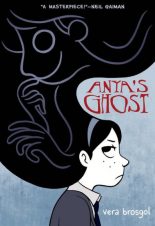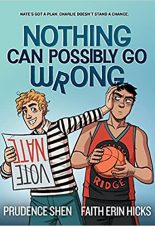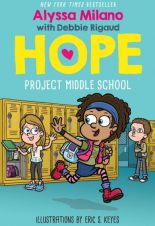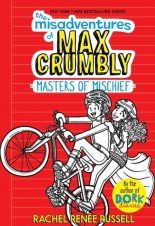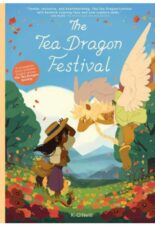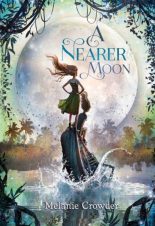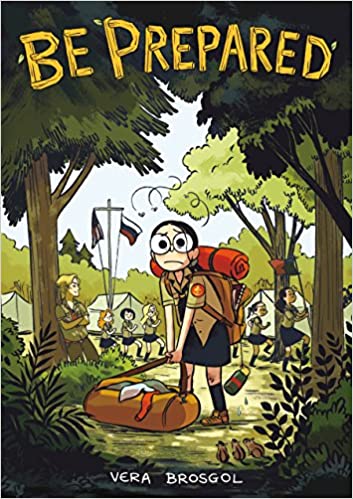
Buy This Book
Other books by Vera Brosgol
“And something I figured out is, friends you buy aren’t as good as friends you get for free,” Natasha. – Be Prepared
Be Prepared
by Vera Brosgol
AR Test
10+
Score
2.6
256
Vera, a nine-year-old Russian girl, yearns for a sense of belonging. She looks to her classmates for guidance on how to fit in. In Vera’s case, this means trying to blend in with her American classmates. Despite her best efforts, she just can’t seem to get it right. Her first American-style sleepover is a disaster, leaving her feeling like she’ll never be able to connect with her peers.
Just when she’s about to give up, her friend, Ksenya, tells her about a Russian summer camp. Vera is intrigued, but also a little hesitant. After all, the camp is in the middle of the woods in Connecticut, which is not exactly what she had in mind. Nevertheless, she decides to give it a try.
When Vera first arrives at the camp, she is introduced to her tent-mates, Sasha and Sasha. While initially hopeful, her first interaction with the Sashas does not go well. Vera tries to make friends with them by drawing pictures and sharing her stash of hidden Skittles, but it soon becomes clear that their friendship is only superficial. Will Vera ever find a place where she belongs?
The Russian language is heavily used throughout the text. There are even some portions written completely in Russian scripture. For example, campers sing a song that is written in Russian scripture: “БУАЬ ГОТОВ, РАЗВеДЧИК, к Делу чеСТноМУ, Трудный путь лежит перед тобоЙ . . .” In addition to direct Russian scripture, there are Russian words that utilize the English alphabet. For example, the boys at the camp are referred to as “volchata,” which means “wolf cubs.” A handful of the English-written Russian words are defined, but most of them are not given a definition and there is not a glossary, which can make some areas of the text harder to decipher.
Be Prepared is a captivating graphic novel that partially draws on the true experience of the author, who shares an intriguing snippet of her life. The graphic novel takes the reader on a thought-provoking journey of self-discovery, narrated from the viewpoint of nine-year-old Vera. Through her eyes, readers witness not only the challenges that many preteens feel, such as finding their place in the world but also the unique challenges immigrant children face.
One of the most striking aspects of the graphic novel is its use of green and gray illustrations. These colors add depth and dimension to the story and help to convey the complex emotions that Vera experiences throughout her journey. The adorable art style, with its round-faced characters and expressive eyes, is both charming and heartwarming, making it impossible not to root for Vera as she navigates the ups and downs of growing up.
In the end, Vera gains a new perspective and begins to reach out to other campers who are also left out. This allows her to find a sense of purpose, make new friends, and appreciate her Russian heritage. Vera’s story is a powerful testament to the resilience and strength of the human spirit. As she learns to navigate the world around her, she discovers new friendships and a sense of belonging that she never thought possible. This graphic novel is a must-read for anyone who has ever felt like an outsider, and for anyone who wants to understand the experiences of immigrant children in a deeper and more meaningful way.
Sexual Content
- Vera starts to change in front of her new tent-mates who are both fourteen. One of the girls says, “She doesn’t wear a bra? Gross!”
- One of Vera’s tent-mates, holds a maxi pad in front of Vera’s face and makes fun of her for not having a period. The girl says, “It’s a maxi pad!! Do you seriously not know what those are?”
- Sasha and Sasha, Vera’s tent-mates, taunt her for drawing Alexei, their camp crush and an older male camper. “She wants [the picture of Alexei] so she can kiss it.”
Violence
- A chipmunk bites Vera on the pointer finger. Vera talks to herself about the possibility of what may happen. “Now I am going to die of rabies… I wonder how many people I’ll bite before they subdue me.”
- Vera, after being bitten by the chipmunk, chooses to stay silent since she feels there is no one she can tell at the camp. When her mother comes to visit her after the second week, Vera fills her in. “I have rabies and I’m going to die!” Vera yells to her mother upon her arrival at camp.
- Vera talks about the violent side of the Russian religion, particularly in relation to Saint Vera. “I never forgot, [the saints] died horrible deaths . . . [Saint Vera] was tortured and beheaded, along with her sisters, while her mother watched. If I was learning anything from the history classes, it was that Russians are bred for suffering.”
- Vera talks about the history that leads up to the formation of the camps that exist today. She talks about the harsh history that made many Russians lose their culture, which is why the camps were formed – to help Russian heritage remember their culture and past. “During one three-year period in the seventeenth century, a third of the population starved to death. And in the twentieth century, the government sent millions of its own citizens to suffer and die in work camps (including my own great-grandmother).” “Gulag” is one of the terms used in the text. This refers to the system of labor camps run by the Soviet Union during the 1930s-50s.
- “Ow! Something stung me!” a male camper exclaimed when a wasp stung him on the forehead. The sting caused an allergic reaction and swelling.
- The camp counselors told a story about a small camper who died because a bigger camper pooped on top of him. The boy “died down there, in the dark at the bottom of the [outhouse].”
- A jealous camper hangs another girl’s bloody underwear on the flagpole for everyone to see.
- Phil, Vera’s little brother, talks about dealing with a mean individual at camp. “Yeah he takes karate at home, and he put me in a headlock. And one time he found a mouse in the woods, and he ran up and kicked it right in front of me. It died.”
Drugs and Alcohol
- None
Language
- Hollywood is used to refer to the outhouse that is set up for the camp.
- When a wasp stings a boy on the head, Vera accidentally says the bite looks like a “nipple.” Afterwards, the entire camp calls the boy “tit head.”
Supernatural
- None
Spiritual Content
- Vera writes to her mother about the Russian church at camp. “On Sundays we have church. It’s just like church at home except it’s outside. They keep all the icons in a little house, so they don’t get wet. I am jealous of the saints for the first time ever.”
- Vera explains what she likes about the church services at camp and her personal connections to the religion. “The orthodox liturgy is a beautiful melodic chant. I understood maybe a third of it. But the icons…I loved the icons. The gilded script, the tiny piece of Saints’ bones in jewel-encrusted frames. And I never forgot those people died horrible deaths. I had a picture of my namesake, Saint Vera, over my bed at home. She was tortured and beheaded, along with her sisters, while her mother watched.”
Other books by Vera Brosgol
“And something I figured out is, friends you buy aren’t as good as friends you get for free,” Natasha. – Be Prepared
Latest Reviews
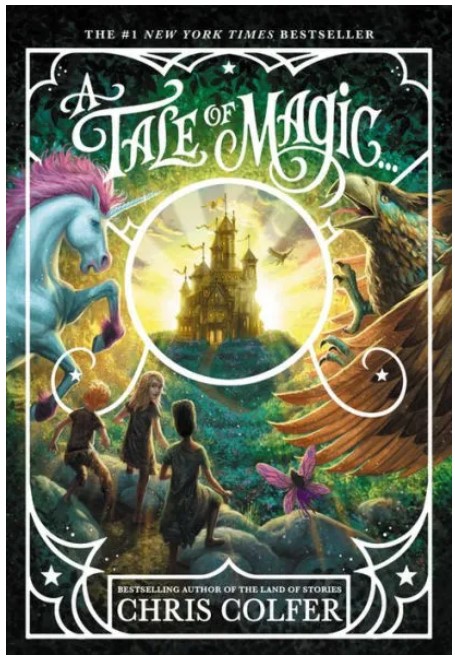
A Tale of Magic

The Immortal Fire

Grace Hopper: Queen of Computer Code

Girls Who Code: Learn to Code and Change the World

Alone

Friends Fur-Ever

Harry Houdini: A Magical Life

The Greedy Gremlin

Hoop Genius: How a Desperate Teacher and a Rowdy Gym Class Invented Basketball

